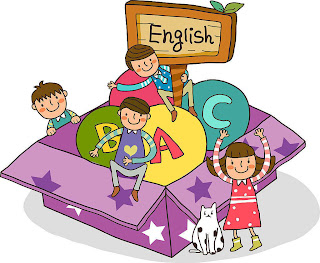Focus in learning:
We think that the communicative
approaches are the best way to learn English, but not only English, every
languages because the communicative is the most important thing for the social
life of the people.
But, We think too that shouldn’t
forget teach some structures grammatical.
How language ítems are selected:
We think like the communicative approaches, because it
is very important that the students learn items for their lifes out of school
and into to the school.
Also, the students must choose that they want to study
because is their education.
How language items are sequenced:
We think that the contents depend of the context of
the school.
Then, we think that the best way to learn English is
change the items if the context need it.
View of language:
We think language is a way of
communication that let us express our feelings, thinks and emotions.
We think too language is a way to
express a part of the culture of a country, because one of the main identities
of a nation is its language.
Type of language used:
We think language is different
into the same country. Into the same country people can speak different lings.
We think too that in different
parts of the same country the language can show different uses: shorter words,
different accents, original words, …
Criterion of success:
We think for example that you
can’t speak the same way when you are talking with your friends that when you
are talking with your boss.
We think too is very important
written language because it can be that in one moment of your life you need to
write a very important letter to the city hall for example. So you have to
express yourself well if you want that the civil servant understand you.
What language
skills are emphasized:
We
remember that i did a lot of readings or writings in school, was so bored.
In our
opinion listenings and speakings are so important, because the reason of
learning English is the spoken communication.
Teacher/student
roles:
We remember
that in my class, only the teacher was the only one that it could speak.
Leave the students to speak, is very important to
improve his communication and that´s the most important thing in learning
English.
Attitude to
errors:
We remember that only one
mistake could you make fail the exam, the rest of sentence wasn´t important.
In our opinion, partially
correct and incomplete utterances are very important if only have one mistake
for example, because the rest of sentence could be more important than this
mistake.





